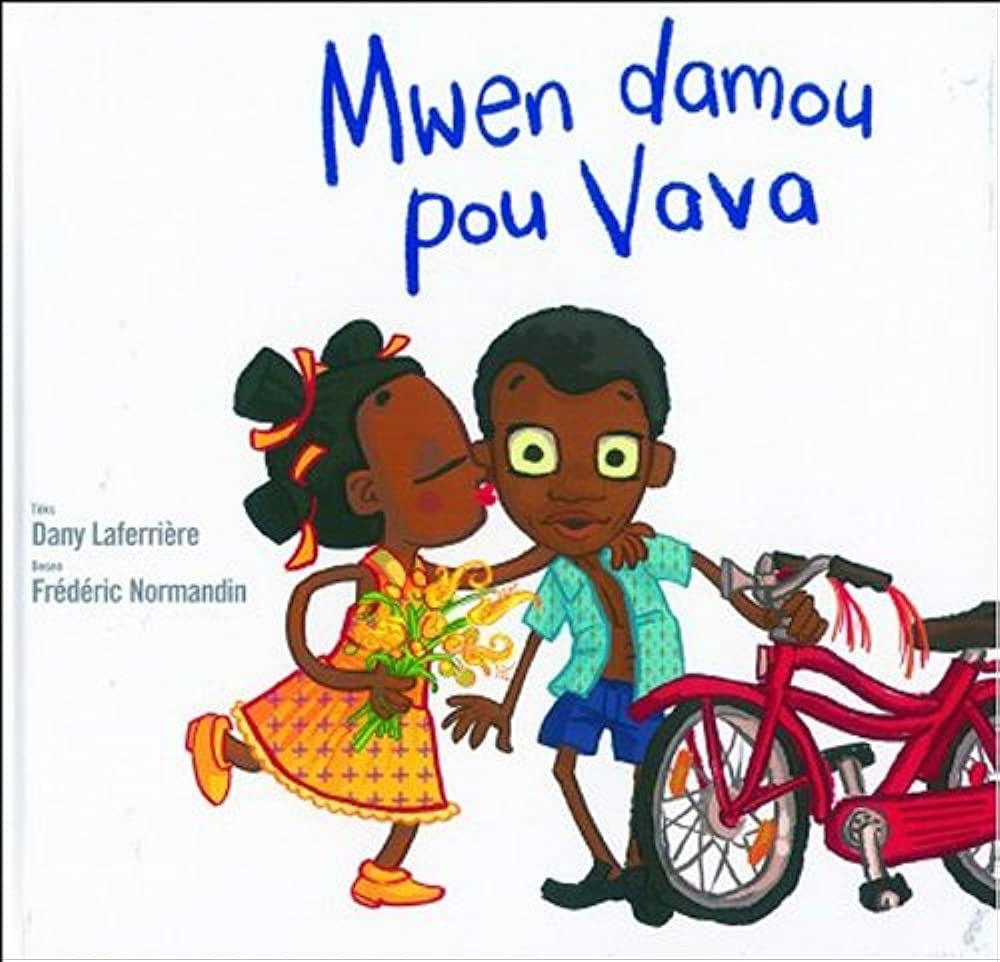So it’s been a little more than a year since I started learning Haitian Creole. There have been many wonderful things that have happened because I began learning this language—I’ve me so so many truly wonderful people who encourage me and assist me and even gently correct me when I mangle their beloved language. Perhaps it is because they think I’m foolish for even trying. Perhaps they are just better people than I. But they have helped me and prodded me to learn the language well enough to speak it—albeit not well enough to be comfortable when speaking it!
I also look for resources to help me, and I’ve written extensively elsewhere about the tools I use to learn, such as tutors and social groups and applications and books—oh, so many books! Some are designed directly for teaching, such as grammar books and dictionaries. Some are just books for reading, whether they’re designed for adults or children.
I found one the other day and I bought it—and I’m utterly charmed by it. Mwen damou pou Vava (I’m in love with Vava) is the story of Vyezo, a young boy in Haiti, around ten years old, having his first crush, and all that he goes through to understand what it means to have that first love, what it means to be a boy, what it means to be alive—and what it means to have hope. The book is so cleverly illustrated, too, with colorful, dynamic pictures and with a font that reminds the reader of the chicken-scratch writing of a young kid.
What really gets me is just how well-written this story is. It’s by a master of words, Dany Laferrière, and translated by Antoine Lyonel Trouillot with wonderful illustrations by Frédéric Normandin, reminiscent of Haiti in their design and color, and it is simple and clever and direct, the craft of a true expert in the art of storytelling and memory.
This is not a formal lesson book. It is not a book of moral guidance or support. It’s just a simple, awkward, funny, heart-touching story of a young kid who dreams the wildest dreams and who hopes that one day someone will find him good-looking and brave and wonderful.
I forgot I was reading Creole as I read it. I could hear this young kid narrating this story. “My friends, you know me, and you know I wouldn’t tell you stories. But one day I met a girl—or maybe I just saw a girl—and I’ve not been able to remember what life was like before she existed.”
It’s not what he says directly, of course. A ten-year-old boy isn’t going to say that. But he’s going to tell you the story, jumping around, sometimes with fantastic tales and sometimes with honesty and insight, and sometimes revealing just a little bit of what it means to come alive.
I would hope more people get a copy of this book and read it to their kids. Sure, they’ll have to learn Haitian Creole, and they’re going to have to teach their kids as well—but I can assure you, it is worth it to encounter this boy and his story.

